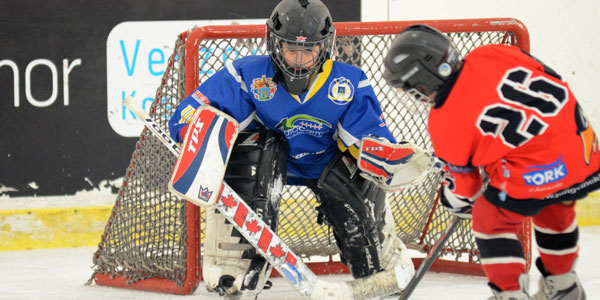
Learning Mental Toughness Skills
What is the core characteristic of mental toughness? The term “mental toughness” is used by a lot of athletes…
Everyday you watch or listen to professional coaches, athletes, or commentators talk about mental toughness. As much as the term “mental toughness” is used, athletes and coaches still have difficulty elaborating on mental toughness and how to develop it.
For example, during half-time interviews with coaches, you will frequently hear a coach say, “We need more mental toughness in the second half if we are going to get back into the game.”
So what exactly is mental toughness?
Mental toughness is the competitive mindset that you are never “out of it” in a tightly contested competition.
In other words, when you are mentally tough, you will compete to the very end. You may not win the game or competition, but you will hustle, scrap, and give it your all to the very end.
Conceding victory is not an option.
For example, a mentally tough gymnast who needs to score a personal best in her weakest event to finish on the podium will focus on the task at hand and go for it…
A mentally tough basketball team down 10 points with two minutes left in the game will fight for rebounds and play tough at the rim…
A mentally tough soccer player will let go of first-half mistakes and look for ways to impact the game in the second half.
Mental toughness is not a switch you flip. If you never practice mental game skills, you cannot expect to be mentally tough when the game is on the line.
Mental toughness is a skill….
You foster mental toughness when you push hard in practice, especially when tired. You develop mental toughness when you continue working on a skill you have difficulty mastering.
You build mental toughness when you visualize successfully competing at your peak under adverse game-time conditions. Athletes in sports at all levels can benefit tremendously from mental toughness training.
Anaheim Ducks defenseman Cam Fowler succinctly summed up mental toughness. After the Ducks secured a 3-2 overtime victory over the St. LouisBlues, Fowler credited the team’s mental toughness for the comeback win.
FOWLER: “I don’t think we ever feel like we’re out of it. They got one there in the third, and we continued to fight.”
Mental toughness is not a skill reserved for NHL players or national-level athletes. Mental toughness is a skill all athletes at every age can learn and improve.
Mental toughness training takes commitment. Not only should you learn how to develop mental toughness from a Mental Game Coach, but it is also necessary to train those skills in practice.
Then and only then will you be on your way to becoming a mentally tough peak performer.
How to be a Mentally Tough Athlete
Compare and contrast your mental game when you are performing well versus not performing well. What are the differences in your mindset and performance?
Did you feel confidence, locked in, in control, and composed when performing well? These are all characteristics of mental toughness.
How did you respond to mistakes or adversity, such as a bad call by a referee? Did you stay composed and move on after mistakes? Another quality of mental toughness. You want to work on these qualities.
When not doing well, did you lack confidence, feel easily distracted, not in control, and frustrated with your performance? Did you “lose it” when faced with adversity, such as being down in the competition?
If so, this is the reason why you want to improve mental toughness. You want more days in which you feel confident and locked in!
Related Sports Psychology Articles
- How to Build Mental Toughness
- How Athletes Deal with Stress
- How to Overcome the Fear of Negative Outcomes
*Subscribe to The Sports Psychology Podcast on iTunes
*Subscribe to The Sports Psychology Podcast on Spotify
Download a free sports psychology report to improve your mental game!
Learn more about our one-on-one mental game coaching.

Can you experience yourself right now walking out onto the court, diamond, course, or playing field with complete conviction in your ability and unwavering confidence beaming like a bright light? Imagine feeling dominant, positive with only confident thoughts, and ready to take control of the game.
You can learn how to think like a champion and have ultimate self-confidence just like the pros. It’s not hard or impossible to achieve – I help athletes reach their goals every day and you, too, can learn the same strategies I teach to my students who pay me well over $1000 per day for personal coaching.
